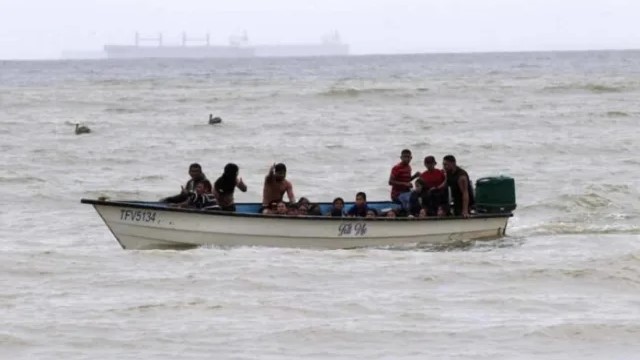
In the state of Sucre, 55 violent deaths were recorded during the first half of 2022, according to the Semester’s Regional Report of the NGO Observatorio Venezolano de Violencia (OVV Sucre, Venezuelan Observatory of Violence, Sucre chapter).
By La Patilla
Aug 24, 2022
Carmen Julia Amundarain, coordinator of OVV Sucre, indicated that the record was six more cases than in the same period of 2021, when 49 violent deaths were registered.
The number of violent events recorded also rose to 116 compared to the same period last year when 69 cases were registered.
“The panorama of violence and insecurity in this first semester in Sucre State, shows that criminals act freely and their exercise of territorial control over the entity (state) are maintained,” she said.
Among the most common crimes committed, intentional homicide was the most common registering 56% of cases, followed by attempted intentional homicide with 35%, death threat or assault 7% and robbery 2%.
Under the category of intentional crime, the highest was murder with 56%, then fatal serious assault 35%, other types of crimes 7% and voluntary manslaughter 2%.
As for other figures of interest to highlight, from the point of view of sex related cases, the main victims of crimes of interpersonal violence, 82% are men and 18% are women.
Regarding the age of the victims, in the first half of 2022 the age group most affected by interpersonal violence was between 30 and 39 years old (43% of cases).
“We continue to observe with concern the impact of interpersonal violence on young men in their productive ages,” added Ms. Amundarain.
She indicated that the daily violence that afflicts the Sucre population has been exacerbated by the economic, political and social crisis. Additionally, the report specifies that the violence has worsened after the relaxation of the Covid-19 quarantine and by the actions of common criminals and articulated armed groups throughout the territory of Sucre.
Violence due to the action of Non-State Armed Groups (GANE), persists in Sucre State, and has strengthened to control not only fishing but also agricultural production, and its action is evidenced in cases such as the one registered on June 17th, when the the body of farmer Santos del Carmen Hernández, 52 years old, was found buried and decapitated on his cocoa farm in the Santa Isabel sector of Arismendi Municipality.
Mr. Hernández was decapitated with a blade, presumably with a machete. In addition, it was learned that until now the investigation points to “settling of accounts” (revenge/extortion) as a hypothesis, according to the publication made by media such as Victims Monitor.
The semi-annual balance of the OVV Sucre shows that the type of weapon most used in crimes during the first semester were sharp objects 37%, firearms 33%, followed by physical force 30%.
63% of the crimes occurred during the week and during the day, followed by 12% of the cases that occurred during the week at night, while weekends during the day and early morning with 9% each, and weekday in the early morning 7%.
While in relation to the place where the crime occurred, the home of the victims stood out with 51% of the events monitored, 35% of the crimes occurred in an open space or the street, the workplace (12%) and the place of study (2%).
The number of victims of interpersonal violence discriminated according to the municipality where the media coverage recorded the event was in Sucre (Cumaná) with 43.8% of the cases; Bermúdez (Carúpano with 23.4%); Arismendi (Rio Caribe with 9.4%); Andrés Eloy Blanco (Casanay with 6.2%); Cruz Salmerón Acosta (Araya) and Valdez (Güiria) with 4.7% each; Montes (Cumanacoa with 3.1%) and Bolívar (Marigüitar), Libertador (Tunapuy) and Ribero (Cariaco) with 1.5% each.
“By observing the behavior of violence in the municipalities located in the axis of the Paria Peninsula, we perceive a loss of territory control (by authorities),” said the coordinator of OVV Sucre.
She explained that the situation is likely to be related to several factors that are currently under development, but mainly due to the action of GANE (Armed criminal gangs) to strengthen its criminal activity and take advantage of the exit to the Caribbean Sea, as well as the border with the island of Trinidad and Tobago, where the smuggling of products such as cocoa, diesel fuel and illicit substances has been confirmed, as well as human trafficking ranging from sexual exploitation to forced labor.
The research team headed by Ms. Amundarain, highlighted the urgent need for a security guarantee for the population living in Sucre State to strengthen not only their economic development through fishing and agricultural production, which has traditionally characterized this area, but the stability and development that all social sectors deserve through respect for human rights.
OVV Sucre Press
…
Read More: La Patilla – Criminal groups in Sucre are strengthened by smuggling and human trafficking to Trinidad and Tobago
…

